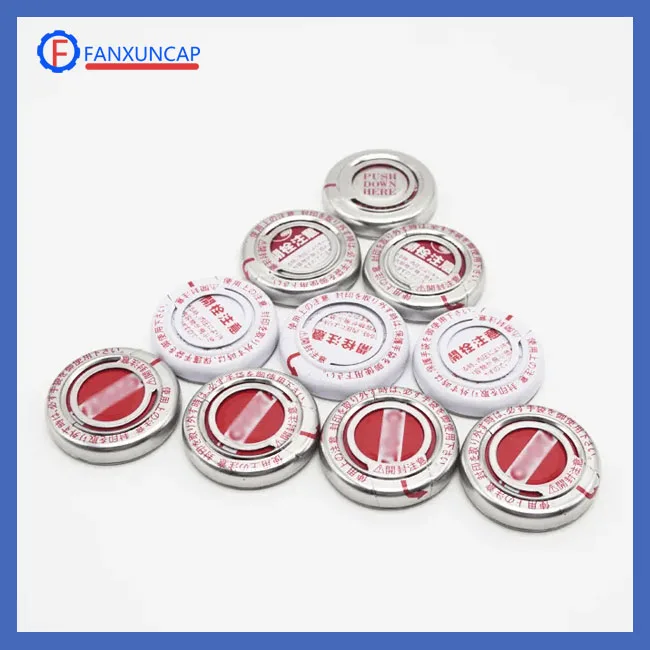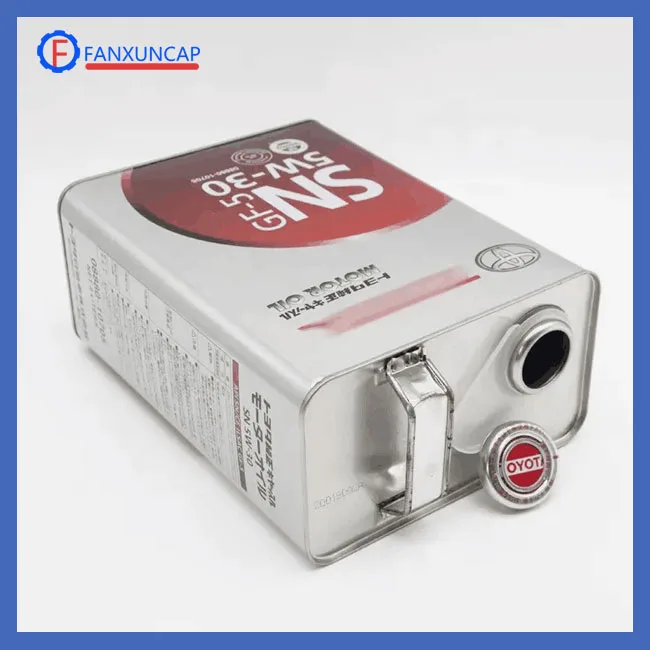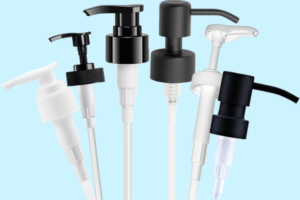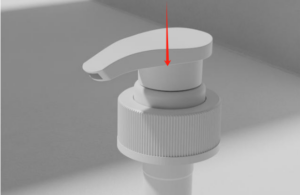Are you looking to extend the lifespan of your engine oil? The secret may lie in using metal closures. Metal closures not only provide a secure seal to prevent leaks but also play a crucial role in maintaining the quality of engine oil.
With their superior barrier properties, metal closures act as a shield, protecting the oil from external contaminants such as air, độ ẩm, and light. This ensures that the oil retains its original properties, allowing it to perform optimally for a longer period of time.
Metal closures are also known for their durability and resistance to corrosion, making them an ideal choice for packaging engine oil. Unlike other closure materials, metal caps do not degrade over time, ensuring the integrity of the oil.
If you’re concerned about the quality and performance of your engine oil, consider switching to metal caps. They provide a reliable solution to safeguard the oil, prolonging its shelf life and maintaining its effectiveness.
Choose metal caps and unlock the secret to maintaining engine oil quality for a smoother and more efficient performance.


What are metal closures?
Metal closures refer to a specific type of closure used in various industries for sealing containers. These closures are typically made of metal, such as aluminum or tinplate, and are commonly used in industries like food and beverage, dược phẩm, and cosmetics. Metal caps are designed to securely seal containers to maintain product freshness, prevent leakage or contamination, and ensure product integrity. They often consist of threaded caps or lids that can be easily screwed onto containers with corresponding threads. The metal construction offers durability, resistance to corrosion, and protection against external factors. Metal closures are favored for their ability to provide an airtight seal, preserving product quality and extending shelf life. They also often include additional features such as tamper-evident bands or liners to enhance product safety and consumer confidence. Tổng thể, metal closures play a crucial role in packaging applications, offering reliable and effective sealing solutions for various industries.
The role of metal closures in maintaining engine oil quality
Metal closures play a vital role in maintaining the quality of engine oil, especially during storage and transportation. Engine oil is a critical component in the lubrication system of vehicles, ensuring smooth operation and reducing friction and wear. Metal closures, such as threaded caps or lids, create a secure seal on engine oil containers, ngăn chặn bất kỳ rò rỉ hoặc ô nhiễm nào. This is particularly important as engine oil is susceptible to degradation when exposed to air, độ ẩm, or impurities. The airtight seal provided by metal closures helps preserve the oil’s chemical composition, viscosity, and lubricating properties over time. Ngoài ra, metal closures often incorporate tamper-evident features, ensuring that the engine oil remains in its original condition and has not been tampered with. By effectively sealing engine oil containers, metal closures contribute to maintaining the quality and performance of the oil, ensuring optimal engine protection and longevity.
Benefits of using metal closures for engine oil containers
Here are the benefits of using metal closures for engine oil containers:
- Secure seal: Metal caps provide a reliable and secure seal, preventing any leakage or spillage of engine oil. This ensures that the oil remains contained within the container, minimizing the risk of contamination and preserving its quality.
- Protection against external factors: Metal closures offer excellent protection against external factors such as air, độ ẩm, and light. By creating a barrier, they help prevent the oxidation and degradation of engine oil, preserving its viscosity and lubricating properties over time.
- Độ bền: Metal closures are known for their durability and resistance to corrosion. They can withstand harsh environmental conditions, ensuring that the engine oil remains protected throughout the storage and transportation process.
- Tính năng chống giả mạo: Many metal closures for engine oil containers include tamper-evident features. These features provide a visual indication if the container has been tampered with, ensuring the integrity and authenticity of the oil.
- Extended shelf life: With their effective sealing capabilities, metal closures help extend the shelf life of engine oil. By keeping out contaminants and maintaining the oil’s quality, they ensure that the oil remains usable for a longer period.
- Brand perception: The use of metal closures can enhance the overall brand perception of engine oil products. These closures convey a sense of quality and reliability, instilling confidence in consumers and positioning the brand as one that prioritizes product protection.
Tổng thể, the benefits of using metal closures for engine oil containers include secure sealing, protection against external factors, độ bền, đặc điểm giả mạo, extended shelf life, and positive brand perception. These advantages make metal closures an ideal choice for ensuring the quality and integrity of engine oil throughout its lifecycle.
Factors to consider when choosing metal closures for engine oil containers
When choosing metal closures for engine oil containers, several factors should be considered to ensure optimal performance and compatibility with the specific application.
- 1. Material and compatibility: Engine oil containers may be made of different materials, such as metal or plastic. It is essential to choose metal closures that are compatible with the container material and can provide a secure seal. Consider factors such as corrosion resistance and chemical compatibility to prevent any adverse effects on the oil or container.
- 2. Thread type and size: It is crucial to select metal closures with the appropriate thread type and size that match the container. This ensures a proper fit and a tight seal, ngăn chặn bất kỳ rò rỉ hoặc ô nhiễm nào.
- 3. Tính năng chống giả mạo: Depending on the specific requirements and regulations, consider metal closures that incorporate tamper-evident features. These features provide visual indicators if the container has been tampered with, ensuring product integrity and consumer safety.
- 4. Application method: Consider the method of application for the metal closures. Some closures may require specialized tools or equipment, while others can be easily applied by hand. Choose closures that align with the existing production processes and equipment for efficiency and convenience.
- 5. Quality and reliability: Look for metal closures from reputable suppliers known for producing high-quality products. Consider factors such as the manufacturing process, quality control measures, and any certifications or standards met by the closures.
- 6. Hiệu quả chi phí: While quality is vital, it is also essential to consider the cost-effectiveness of the metal closures. Compare prices and evaluate the overall value provided by the closures, including factors such as performance, độ bền, and brand reputation.
Bằng cách xem xét cẩn thận những yếu tố này, one can select the appropriate metal closures for engine oil containers, ensuring a secure seal, product integrity, and customer satisfaction.
Best practices for ensuring optimal engine oil quality with metal closures
1. Proper storage and handling: Store engine oil containers in a cool, dry place away from direct sunlight and extreme temperature fluctuations. Handle the containers with care to prevent damage to the metal closures and maintain their integrity.
2. Adherence to recommended shelf life: Engine oil has a limited shelf life, and it is essential to follow the manufacturer’s recommendations regarding storage duration. Using engine oil beyond its recommended shelf life can lead to degraded performance and potential engine damage.
3. Regular inspection: Inspect the metal caps for any signs of damage, such as dents, corrosion, or bent threads. Damaged closures should be replaced to ensure a secure seal and prevent any contamination or leakage.
4. Proper closure application: Ensure proper closure application by aligning the threads correctly and tightening the closure adequately. Over-tightening or under-tightening can lead to seal failure or difficulty in opening the container when needed.
5. Avoid cross-contamination: Prevent cross-contamination by using separate metal closures for different types or grades of engine oil. Mixing incompatible oils can result in performance issues or damage to the engine.
6. Compliance with safety regulations: Follow all applicable safety regulations, such as those related to tamper-evident features or child-resistant closures. Adhering to these regulations ensures product safety and customer satisfaction.
By implementing these best practices, businesses can maximize the benefits of using metal closures and ensure optimal engine oil quality, contributing to the overall success and reputation of the brand.
Phần kết luận: The key to maintaining engine oil quality with metal closures
The key to maintaining engine oil quality lies in the selection and proper use of metal caps. Metal closures offer a range of benefits, including secure sealing, protection against external factors, độ bền, đặc điểm giả mạo, extended shelf life, and positive brand perception. By considering factors such as material compatibility, thread type and size, đặc điểm giả mạo, application method, chất lượng, và hiệu quả chi phí, businesses can choose the most suitable metal closures for their engine oil containers. Implementing best practices for storage, handling, regular inspection, proper closure application, avoiding cross-contamination, and complying with safety regulations further ensures optimal engine oil quality with metal closures.




